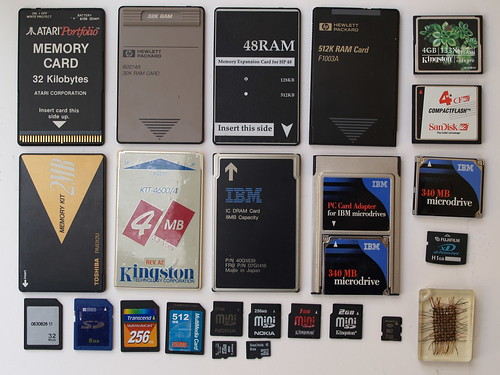 Memory fades over time. And unless you have reason to remember specific events, those tend to fade into a haze of other events just like it and misremembered details. (Unless, that is you are this woman who appears to remember every detail because she writes them down and reviews them.)
Memory fades over time. And unless you have reason to remember specific events, those tend to fade into a haze of other events just like it and misremembered details. (Unless, that is you are this woman who appears to remember every detail because she writes them down and reviews them.)
What about all that stuff we write and share with our friends on Facebook, Twitter and other say-it-as-fast-as-you-think-it services in the world? For that matter, what about the trash talk over a friendly game of euchre? I suspect it works the same as our memory of any other kinds of events. We remember the recent stuff, and tend to forget the things in the past.
Of course, this gets tied up with the technology, and Patrick Lambe has posted The War Between Awareness and Memory to think about this.
[T]here is evidence that faster, easier, access to current awareness broadens our absorption of the present and thins out our access to the past. Simply put, too much of now means less and less memory.
Essentially, when we have access to so much new information, it becomes easier and easier to drop things out of long-term memory. Or maybe it is almost a requirement: our brains can only track so much, so something has to go, yes? But then the technologies are supposed to make it easier to remember things, right? Isn't that one of the many directions knowledge management has taken us? "If we only knew what we know" is a familiar catch phrase.
One element of Patrick's discussion is thinking around where technology has been headed recently: to shorter, faster, easier means of communication and sharing of ideas - even beyond what we might do in a conversation. Of course, there is no underlying technology that does what our brains do: consolidate, summarize, drop the useless crud, etc. It just sits there in the technology to be found again via search (or not, in the case of Twitter).
In the discussion these "fast and thin" technologies are juxtaposed against the "slow and thick," tools like document management and knowledge bases, where there is an explicit process in place to store materials and is ostensibly easier to retrieve. One might even consider scientific journals to be an even slower version of this process.
I see another distinction here. The "newer" technologies are generally about user-engagement and creation, whereas the "slower" methods are more focused on control and management activities much more so than the creation. Seen in this light, these technologies and processes spring from the situation where writing things down was a time-consuming process. You wanted to have it right, if you went to that much effort. Unfortunately, the phrase "Document management is where knowledge goes to die" springs to mind.
In knowledge management, we are trying to combine the interesting knowledge that flows between people in natural conversation as well as the "hard knowledge" of documented and proven ideas and concepts. KM has shown that technology just can't do everything (yet?) that humans can do. As Patrick says, technology has been a huge distraction to knowledge management.
Please do read Patrick's piece, he goes into much greater detail than I do.
[Patrick - I tried to leave a comment, but the CAPTCHA is broken.]
[Photo: "Memory Collection" by teclasorg.]